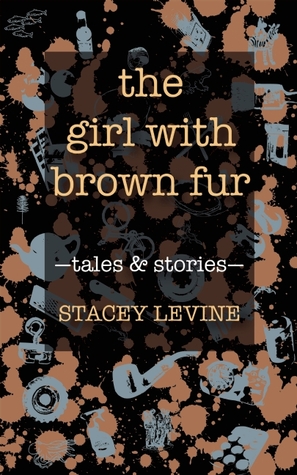How might one become complete? A fulfilled human being? Own a cat and as it ages, clone it. Fly your airplane away from your mother’s illness. Produce an extraordinary amount of sausage. Marry the first woman who walks into your place of business, and if she runs off to Ohio, take her to Rome. Steal an enslaved girl covered in whitish-brown fur. The inhabitants of Stacey Levine’s stories attempt each of these things and more, with no more success than people who have extramarital affairs or people who buy sports cars. Thankfully, Levine’s stories have a refreshing lack of respect for reality. In “And You Are,” a manic-depressive and her former babysitter, Mrs. Beck, decide, “using a few brief, blunt words, to become long-term partners and companions.” Mrs. Beck is consumed by regrets for a wasted life. In a snack shop they meet a short-order cook who’s setting out to do huge things, “and some awful things.” He sends them to fetch mustard. The possibility is exciting to the young manic-depressive, and terrifying to the old babysitter. And while the situation is wacky, one wonders at the fate of all those babysitters who once represented so much authority and potential. Might they be being force-fed in a stadium basement, or, worse, lost in the mediocrity of life?
In the ’50s, French novelist Nathalie Sarraute claimed that a contemporary writer should blush at the idea of psychology. Still, most stories concern themselves more with the motivations behind actions than with the actions themselves: twenty pages for a breakup, two hundred for a murder. There is little hand-wringing in the twenty-seven “stories and tales” in The Girl with Brown Fur. The narrator of the title story can hardly believe, five short pages after deciding to steal the furred girl, that the girl is in her possession. In five more pages, the girl is lost in north Los Angeles. Her deepest reflection upon her actions is:“No one knows why even forest animals engage in altruistic acts, when they do. Helping others is only a confusion of identity, a ploy on the self, a rewinding of one’s own life. The pleasure it brings is a ruse.”
The pleasure the reader experiences watching Levine’s characters crash through their astringently depicted existences is the pleasure of desperate humor. We see Pat Smash, a precocious man-boy, trying to articulate himself in a simple middle-class fashion. Finding an impoverished family squatting in his entryway, he...
You have reached your article limit
Sign up for a digital subscription and continue reading all new issues, plus our entire archives, for just $1.50/month.
Already a subscriber? Sign in





